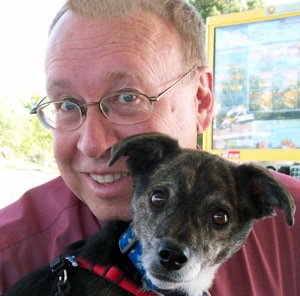
Michael Swickard
There is a great evil in our world gaining strength. It fosters violence and replicates itself year after year. Good citizens decry it but then do everything necessary to enable it.
January 8th our nation was shocked by the mindless violence in Arizona, which was neither more nor less horrendous than previous violence against innocent victims. It was merely the next time.
In the 24-hour news coverage not once have I heard, to my mind, the question we should ask: What were the incentives for this to take place? Why did the shooter think his life would be made better by this action?
The incentive question is critical since humans generally act upon a model of making life better for themselves. To themselves they frame each action as a way of living a better life. So where did the notion come from that shooting into a crowd would make things better for him? What did the shooter want to get?
Sadly, the answer is notoriety. It is one of the most prevalent influences in our society. Regardless of his stated reason, I suspect the notoriety of having everyone in our nation know his name was the lure. Axiomatic in Hollywood is, “It does not matter what people say about you as long as they talk about you.”
Yes, I am theorizing and do not know his mind. However, as I watch the coverage of major shootings in our society, all indicators point to this: Evil, thy name is notoriety. The perpetrator decided someone with notoriety is better off than being like the millions of anonymous common citizens.
Why use a gun? It is part of notoriety. Kids watch hour after hour of television and movies where the solution to problems is to shoot someone. They see unacceptable behavior lauded and notoriety rewarded. Children watch hundreds of “shootings to solve a problem” each week. Heroes as well as bad people, all larger than life, solve their problems with guns and become notorious for their actions. I cannot think of a major movie star who has not shot someone on screen to solve a problem.
A well-established syndrome
The copycat syndrome has been well established. Many unbalanced perpetrators are only doing what they have spent thousands of hours watching on television, in movies and in video games. It is not a defense for their actions, it is an explanation. We find that perpetrators of random violence often have spent lots of time watching previous random attacks and valued the notoriety given previous shooters.
When the first news of the attempt on President Ronald Reagan surfaced in 1981 there was the notion it was connected to politics. No, the same potential assassin had tracked Jimmy Carter but was not able to mount an attack. His notoriety need was not political; it was to impress a Hollywood actress. Please note I am not using his name on purpose, nor am I using the name of the most recent shooter. I will not give that notoriety to either.
I am not saying that we should do away with television and movies, but we must recognize where the “notoriety bug” is planted and work to deal with those effects. Do I have a quick easy answer to these problems? No, but I think we must start by identifying the problem. That problem is the incentive for some of our more unbalanced citizens to act out in search of notoriety.
So how do we deal with these shootings where for the next week the name of the shooter is the most important name in our society? This is not about guns, this is about notions. I am not for censorship, but with our best minds we must see the link of celebrating (in an odd way) people like the man who planted the bomb that destroyed the federal building in Oklahoma and how some unbalanced individuals seize upon the effect of that notoriety.
Think of it like planting a tree. The best time to plant a tree was 10 years ago; the next best time to plant a tree is now. The best time to start dealing with this notoriety caused violence problem was 10 years ago. The next best time is now.
Swickard is a weekly columnist for this site. You can reach him at michael@swickard.com.
Swickard bio │ Archives │ Feed
